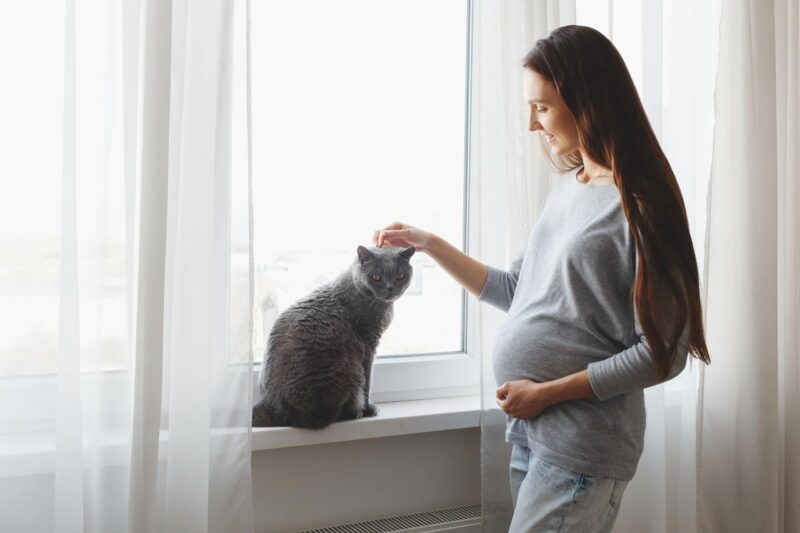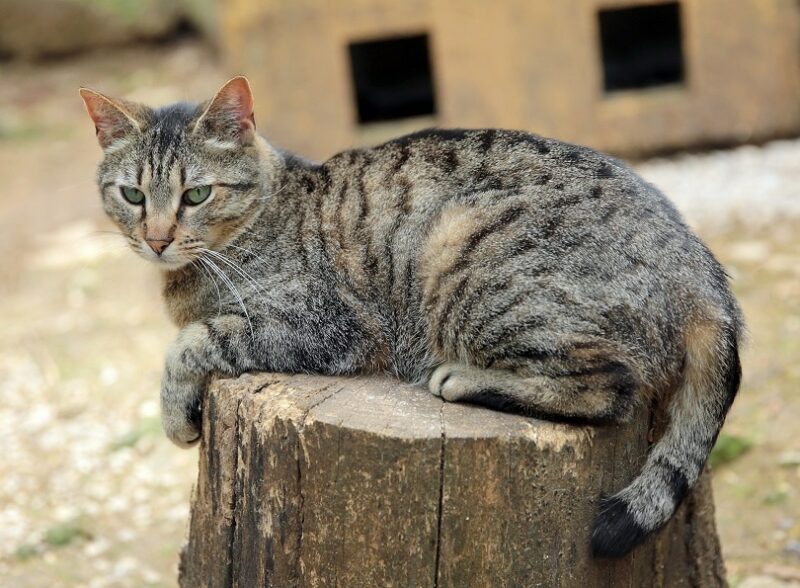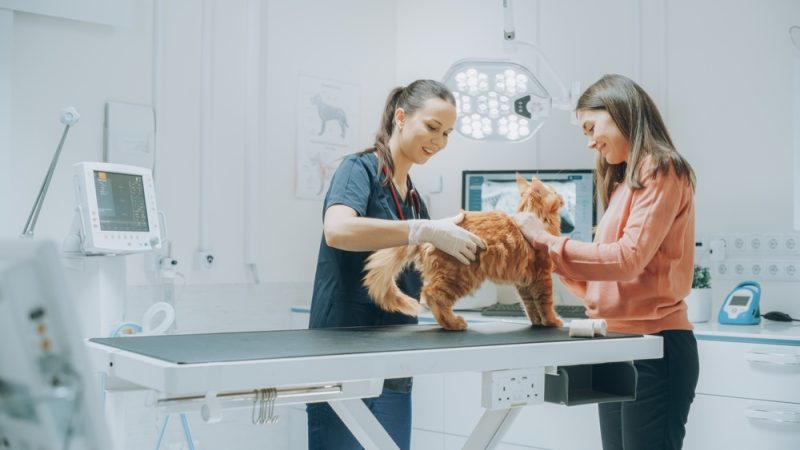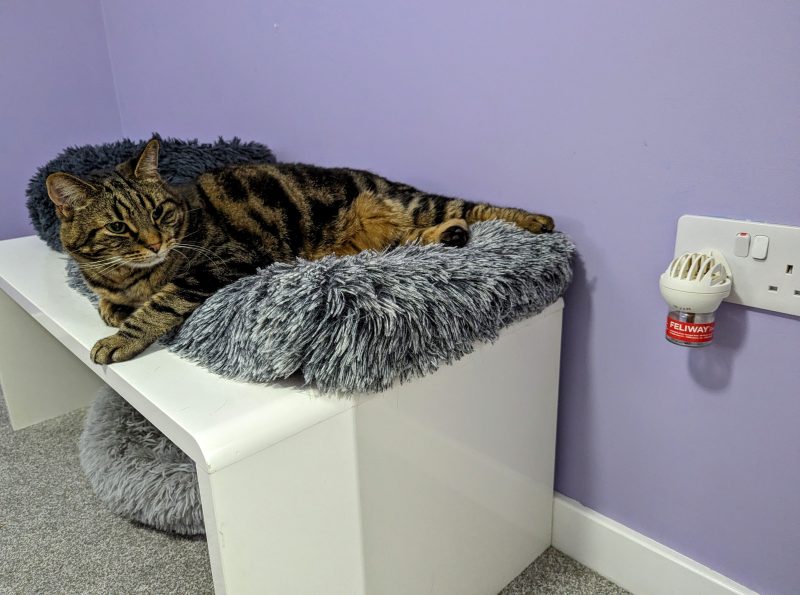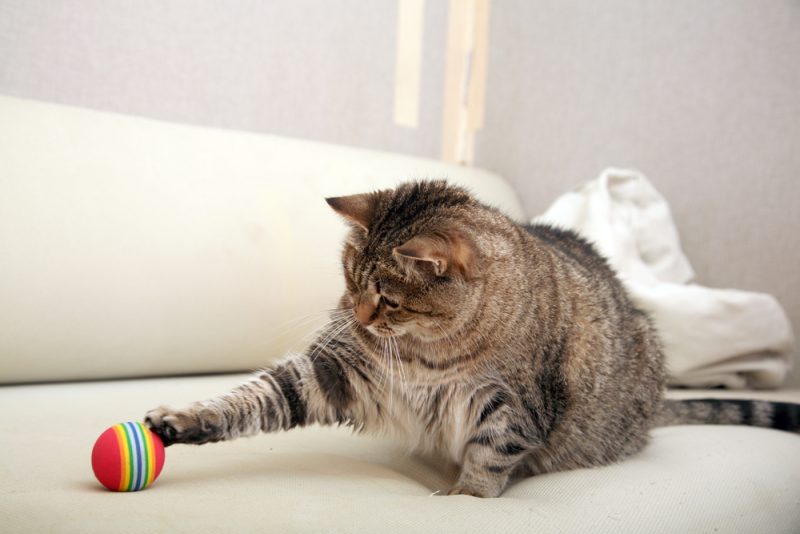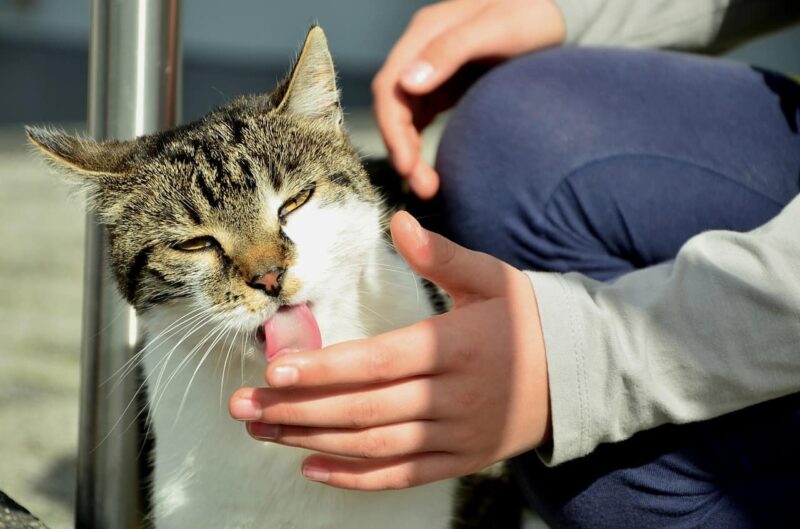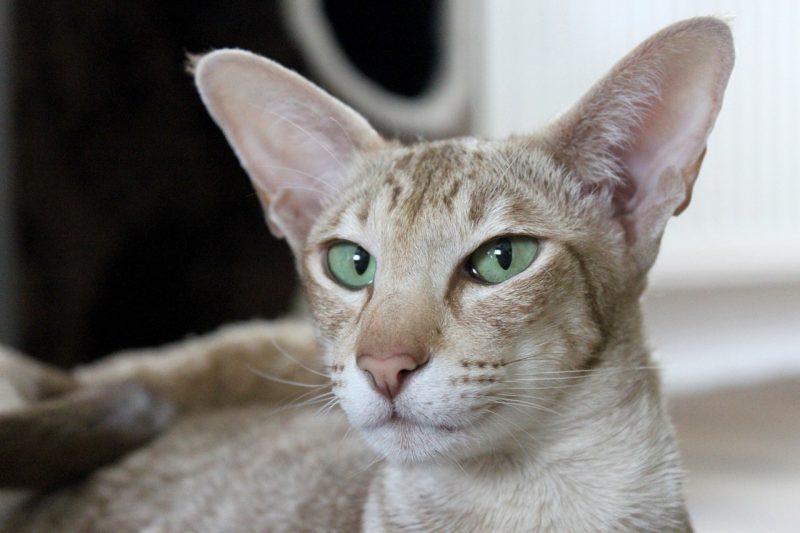In this article
Can you have a cat while pregnant? It’s a common question from expecting mothers. Many public health agencies, such as the Centers for Disease Control and Prevention (CDC) have guidelines for pregnant women when it comes to cats. Pregnant women are discouraged from interacting with stray or feral cats (especially kittens) and are also discouraged from adopting any cats while pregnant. However, there’s no reason to disown a pet cat that you already own prior to your pregnancy, but specific measures are recommended for existing pet cats to ensure a safe pregnancy.
The primary risk associated with cats and pregnant women is the transmission of a parasite, known as Toxoplasma gondii. This can result in parasitism known as toxoplasmosis. Toxoplasmosis during pregnancy is considered dangerous for a developing fetus, as the parasite can affect a fetus in utero despite a pregnant woman showing no signs of illness herself.
Read on as we explain this disease in greater detail and the steps you can take as a pet owner to protect yourself while you’re pregnant.

Toxoplasmosis Basics & What You Need to Know
The most serious condition you need to worry about when caring for cats while pregnant is toxoplasmosis, caused by the parasite Toxoplasma gondii. This parasite is found all over the world. It cannot be seen with the naked eye, as it’s microscopic in size—it’s considered an intracellular parasite. This parasite can infect any warm-blooded animal (including birds and marine mammals), however, cats are the definitive hosts of the parasite. This means the parasite needs a cat’s body to reproduce.
Cats themselves acquire this parasite from the meat of the prey they consume. Additionally, as the parasite is shed by cats in their feces, a cat never exposed to the parasite may acquire it by coming into contact with the feces of an actively infected cat that is shedding the parasite’s eggs (more on that shortly). This makes kittens more likely to be actively infected with the parasite, as the odds of them being naive to the parasite are higher.
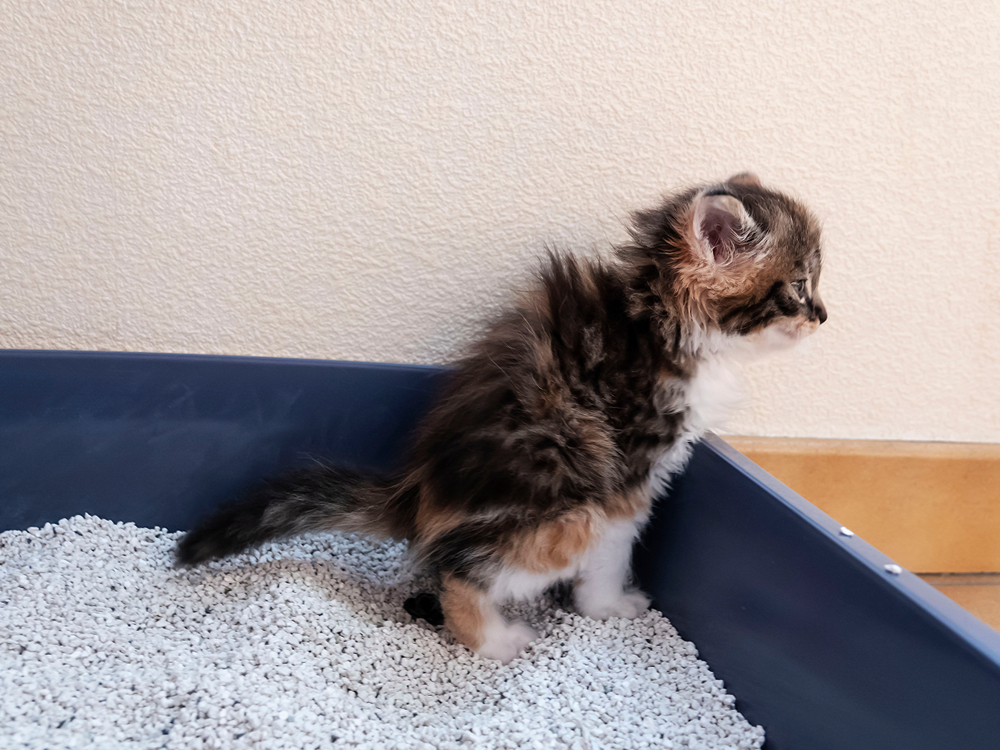
Given its ubiquitous prevalence, this parasite is very common in cats. When a cat first acquires this parasite, they will, in most cases, be able to handle it very well (unless they are severely immunocompromised). In fact, most cats rarely show any signs of infection or parasitism and quickly develop immunity to it. Nonetheless, the parasite will undergo reproductive processes within the cat’s body, and the cat will shed the eggs of the parasite in their feces.
Cats will shed the eggs of the parasite only once in their lifetime, for a period of 17 days. This shedding starts 3 days after their first exposure to the parasite and lasts up to around 20 days after the infection. For instance, if a cat were infected by Toxoplasma gondii for the first time on the 1st of a month, it would shed the eggs of the parasite from the 4th of the month to the 21st of the month.
The eggs of this parasite take anywhere from 1–5 days after they’ve been passed by a cat to become infectious. This duration depends on environmental conditions such as temperature and aeration.

Cats & Pregnant Women
So how does this all tie to pregnant women? Owning a cat does not mean you will become infected while pregnant. As such, it’s not important or necessary to get rid of your pet cat while pregnant. However, it’s important to take precautions as a pet owner when it comes to pregnancy or the prospects of pregnancy.
The parasite is relevant because of its ability to affect a developing fetus.
The fetus of a woman who has not been exposed to the parasite before, and acquires the parasite just before or during pregnancy may be born apparently healthy, but may develop issues such as vision loss, mental disability, and seizures later in life. A cat isn’t the only way a person may acquire this parasite.
- Eating food, drinking water, or swallowing anything that has been contaminated with an infected cat’s feces
- Eating raw or undercooked meat from animals that are infected with the parasite (for example: pork, lamb).
For more information about your health during pregnancy, we strongly advise reaching out to your healthcare provider.
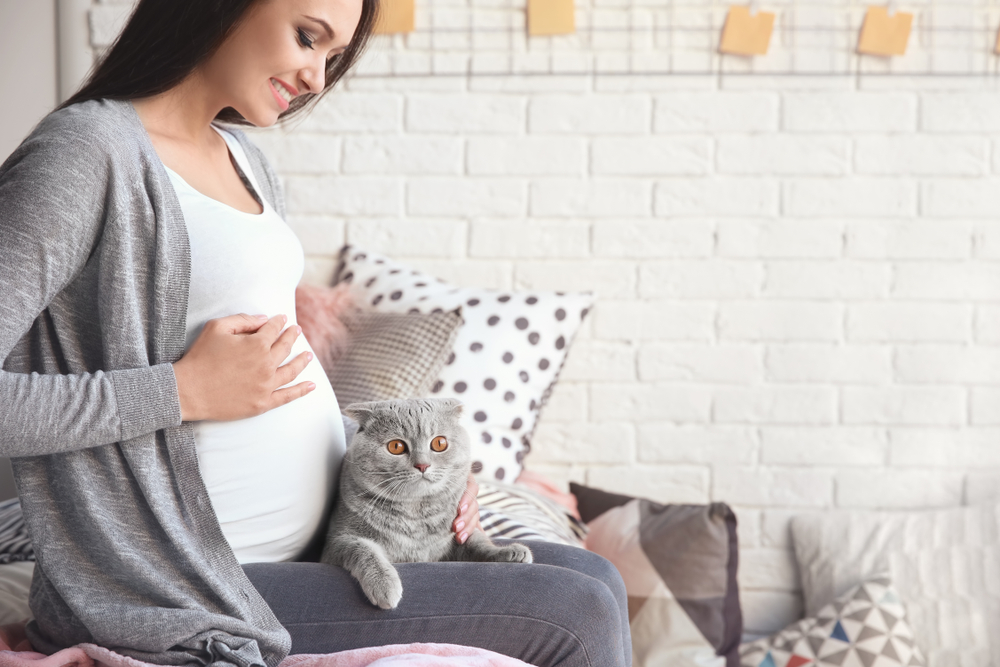
Can You Adopt Cats While Pregnant?
If you are pregnant or trying to conceive, current health guidelines discourage interacting with stray or feral cats (especially kittens) and adopting cats. Hopefully, the description above is a reasonable explanation as to why these guidelines exist. Interacting with cats essentially increases the risk of exposure to the parasite.

Additional Guidelines
If you are pregnant or trying to conceive, in addition to not adopting a new cat, the following guidelines are recommended:
Guidelines Concerning Women
- A pet cat’s litter box should be changed daily. The parasite takes more than a day to become infectious and as such, this measure is very important. It’s best to have someone else take over litter box duties for you. If this is not possible, always use disposable gloves while changing litter and thoroughly wash your hands afterward.
- Cover outdoor sandboxes. If your yard has a sandbox or other areas that cats like to use as a makeshift litter box, you should cover them to minimize the risk of being close to an infected cat’s feces.
- Do not consume undercooked meat. Whole cuts of meat should be cooked at at least 145°F (63° C) with a 3-minute rest, and ground meat and wild game should be cooked at at least 160°F (71º C).
- Raw meat hygiene. You should thoroughly wash all kitchen supplies (cutting boards, knives, utensils, cutlery, etc.) that have been in contact with raw meat. It’s best to have someone else do this for you.
Talk to your healthcare provider if you are immunocompromised or in doubt about the best practices for you during your pregnancy.

Guidelines Concerning Pet Cats
- Indoors only. It’s best to have your pet cat as an indoors-only pet, as this minimizes the risk of them venturing outdoors and acquiring the parasite (either from the prey they hunt or from the feces of other cats they come in contact with).
- No raw food. As a cat can acquire this parasite from the meat of their prey, a pet cat shouldn’t be on a raw diet if you are pregnant or trying to conceive. They should be on some form of a cooked diet instead. Commercial diets are the easiest and safest option to achieve this.
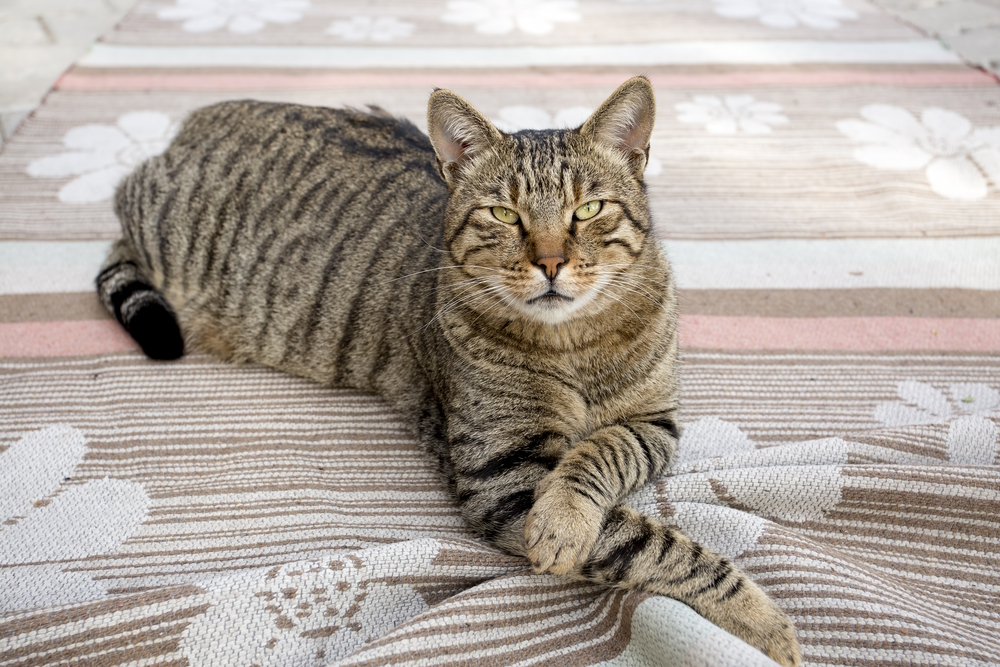
Frequently Asked Questions
Can I Kiss My Cat While Pregnant?
You should avoid kissing your cat on their lips while pregnant (or even when you’re not pregnant). In fact, it isn’t recommended to kiss your cat anywhere in general, though some people do enjoy giving their cats a gentle kiss on the head every now and then. Petting your cat is considered safe though.
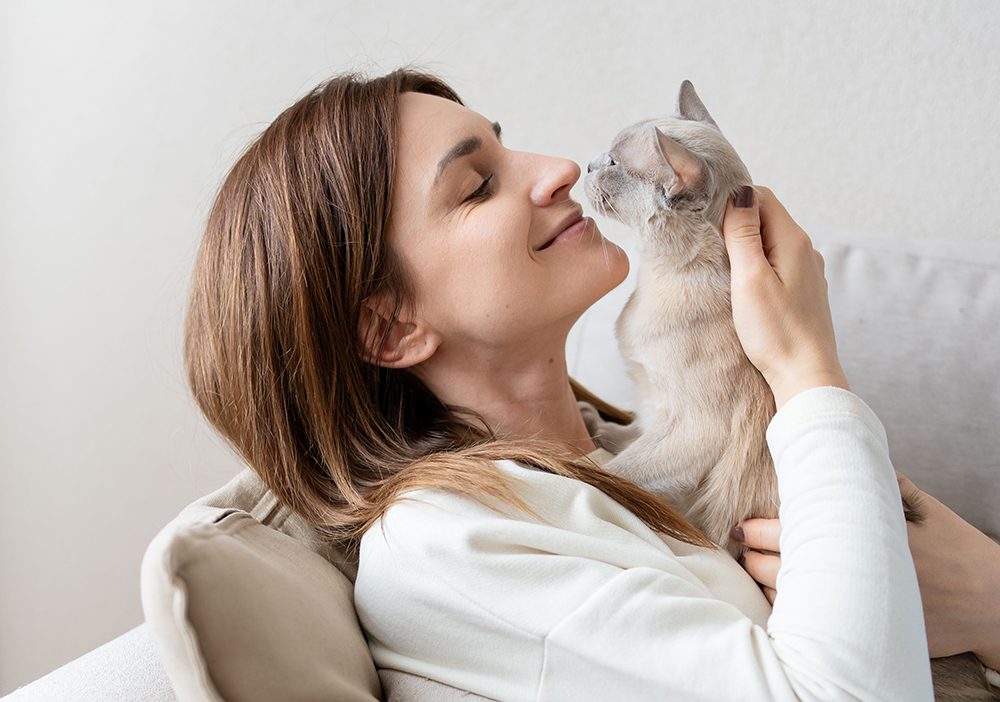
Can I Sleep With My Cat While Pregnant?
While you can pet your cat while you’re pregnant, you should do your best to keep your cat off your bed. After all, you generally wouldn’t want cat litter paws or a cat’s but on your face (or worse, on your lips!) while you sleep.

Final Thoughts
The prevalent concern with regard to pregnancy and cats is the potential of Toxoplasmosis, a parasitism associated with cats. As such, it’s important to take measures to guarantee the safety of you and your feline.
While pregnant, you should not interact with stray or feral cats, and adopting a new pet cat is also discouraged. However, being pregnant does not warrant getting rid of your pet cat. Hygiene measures and a few adjustments can ensure a safe pregnancy for you. As always though, it’s best to follow your healthcare provider’s recommendations to ensure a safe pregnancy.
See Also:
Featured Image Credit: Nesolenaya Alexandra, Shutterstock
